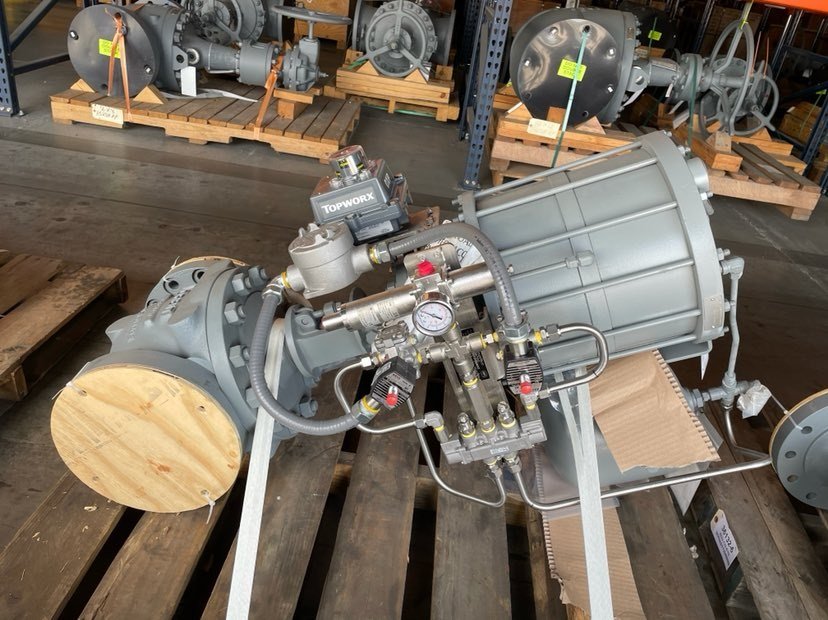Have you ever wondered how fluids and gases are managed so precisely in industrial systems? What makes it possible to maintain efficient and controlled flow in complex pipelines or machinery? Valve controllers are a critical component in flow control systems, enabling precise regulation of fluids and gases. These devices are not only vital in industries like oil, gas, and water treatment but also ensure safety and efficiency in many applications.
How Valve Actuators Regulate Flow Control
Valve actuators are the driving force behind the precise management of fluid and gas flow in industrial systems. Without controllers, it would be nearly impossible to automate the process of opening or closing valves to regulate the flow. These devices work by converting energy (usually electrical, pneumatic, or hydraulic) into motion, which then controls the position of the valve.
- Automation: They allow for automated valve movement, reducing the need for manual operation.
- Precision: They offer fine-tuned control over how much fluid or gas passes through a system, maintaining the desired flow rate.
- Remote access: They enable operators to control valves remotely, which is particularly useful in hazardous or hard-to-reach locations.
Types of Controllers and Their Role in Flow Systems
Different industries rely on various types of control devices to manage flow control systems, with electric, pneumatic, and hydraulic controllers being the primary types. Electric controllers, powered by electricity, are ideal for applications that require precision and accurate valve positioning.
Pneumatic controllers, which use compressed air, are known for their fast response times and reliability, making them common in industries requiring quick actions with low maintenance. Hydraulic controllers, driven by pressurised liquids, provide high force and are typically used in heavy-duty systems where significant power is needed to move valves efficiently.
Advantages of Using Control Devices in Flow Systems
The use of control devices in flow systems brings numerous benefits, from improving efficiency to enhancing safety. These devices streamline the management of fluids and gases, ensuring that processes run smoothly and consistently.
- Increased efficiency: Automating valve movement reduces human error and improves overall system efficiency.
- Enhanced safety: With remote and automatic control, they minimise the need for manual interaction, especially in hazardous environments.
- Reduced downtime: Automated flow control systems are less prone to failure, leading to reduced downtime and fewer disruptions in industrial processes.
Improving System Reliability with Flow Control Solutions
For industries handling large volumes of liquids or gases, reliable flow control is essential, and operators play a key role in maintaining system stability. By making precise adjustments, they ensure consistent flow rates, preventing overflows or shortages. Their quick response times allow for immediate valve control during pressure changes or emergencies, preserving system integrity.
Additionally, the automation provided by operators reduces physical stress on valves, minimising wear and tear, which in turn extends the lifespan of the equipment and lowers maintenance costs over time.
Customising Mechanisms for Specific Industry Needs
One of the most appealing features of mechanisms is their ability to be customised for specific flow control needs. Industries like water treatment, oil and gas, and manufacturing all require different levels of precision and force. By choosing the right type of actuator, companies can tailor their systems for optimal performance.
- Adaptability: They can be modified to suit the specific flow requirements of any system, ensuring maximum efficiency.
- Special features: Custom ones can include additional features such as fail-safes, sensors, or specific movement ranges to meet industry standards.
- Cost efficiency: By using mechanisms designed specifically for their needs, businesses can save on energy consumption and maintenance costs.
Valve actuators are indispensable components of modern flow control systems, providing the automation, precision, and reliability necessary for efficient operations. From managing flow rates to ensuring safety, controllers play a critical role across various industries. By investing in tailored flow control solutions, businesses can ensure that their systems operate smoothly and efficiently, benefiting from the automation and reliability that operators provide.



